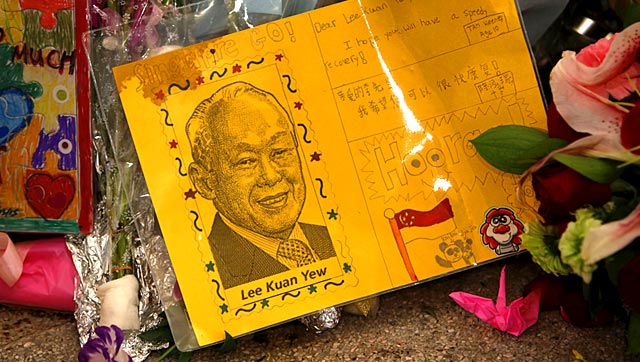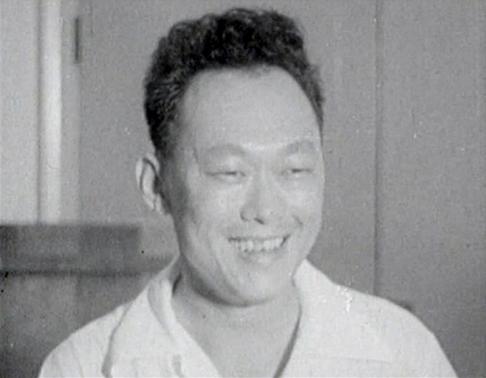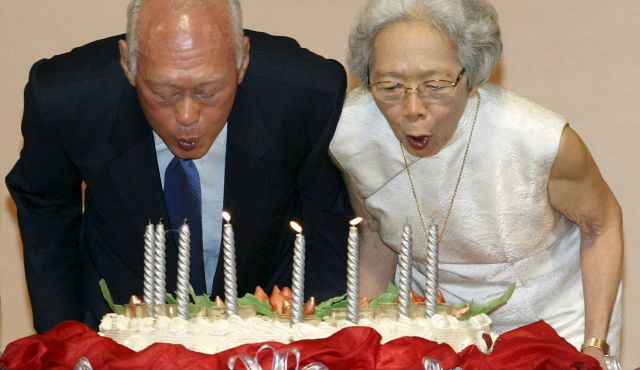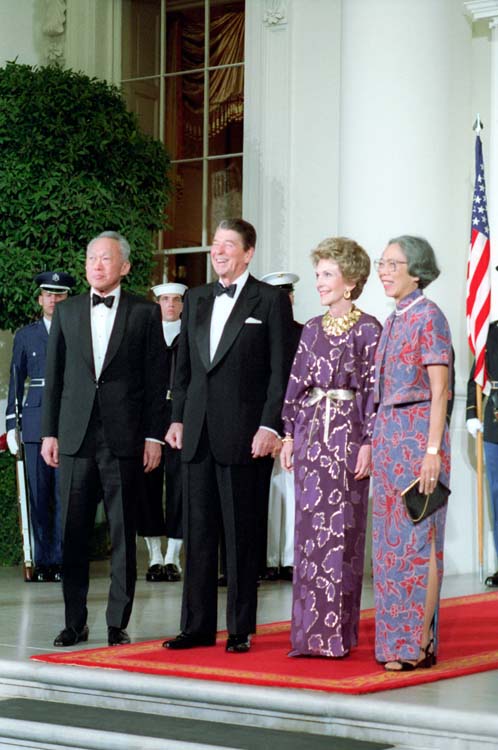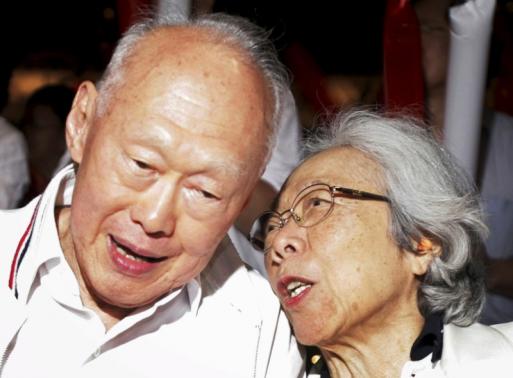Lee Kuan Yew, Singapore's first prime minister, died on Monday aged 91.
US President Barack Obama described Lee, who ruled Singapore for three decades, as "a true giant of history." In the last few years, Lee had withdrawn from public and political life, but he was still seen as an influential figure in the government of Prime Minister Lee Hsien Loong, his oldest son.
"The prime minister is deeply grieved to announce the passing of Mr Lee Kuan Yew, the founding prime minister of Singapore," the Prime Minister's Office said in a statement.
He died at 3:18 am local time (3:18 pm EDT) at Singapore General Hospital, where he had been admitted on 5 February due to pneumonia.
The government has declared a week of national mourning until his funeral on 29 March. Lee's family will hold a private wake in the next two days, then his body will lie in state at parliament from Wednesday to Saturday.
In his lifetime, Lee drew praise for his market-friendly policies but also criticism at home and abroad for his strict controls over the press, public protest and political opponents.
Here we have compiled 6 interesting things about the founding father of Singapore:
1. Lee Kuan Yew, was born as Harry Lee Kuan Yew on 16 September 1923. He ruled Singapore for three decades and is recognised as the founding father and also "Architect of Modern Singapore".
2. Lee Kuan Yew wanted to become a lawyer, and it was not until 1951 that he took his first step towards politics. Starting as an election agent for a pro-British Progressive Party legislative council elections,Yew today is considered as one of history's longest-serving ministers.
3. Yew was a fourth-generation Singaporean and his great-grandfather, Lee Bok Boon had emigrated from Dabu County, Guangdong province, China, to Singapore in 1863.
4. He briefly attended the London School of Economics before moving to the University of Cambridge, from where he graduated with a rare double First Class Honours.
5. It was after leaving Cambridge, Lee decided to omit his English name, Harry, and simply be known as Lee Kuan Yew. His close friends, however, still called him 'Harry Lee.'
6. On several occasions, Lee was identified as an agnostic, though as a child he grew up practising Chinese folk religion. In 2009, Lee Kuan Yew identified himself as a member of the Buddhist/Taoist community.
Lee Kuan Yew Memorable Quotes
On Britain's defeat at the hands of Japan in 1942:
The dark ages had descended on us. It was brutal, cruel. In looking back, I think it was the biggest single political education of my life because, for three and a half years, I saw the meaning of power and how power and politics and government went together, and I also understood how people trapped in a power situation responded because they had to live. One day the British were there, immovable, complete masters; next day, the Japanese, whom we derided, mocked as short, stunted people with short-sighted squint eyes.
On Political Correctness:
I always tried to be correct, not politically correct."
On his governing style:
Anybody who decides to take me on needs to put on knuckle-dusters. If you think you can hurt me more than I can hurt you, try. There is no way you can govern a Chinese society."
If you are a troublemaker... it's our job to politically destroy you... Everybody knows that in my bag I have a hatchet, and a very sharp one. You take me on, I take my hatchet, we meet in the cul-de-sac."
Lee announcing the separation of Singapore from Malaysia on 9 August,1965:
For me, it is a moment of anguish. All my life, my whole adult life, I believed in merger and unity of the two territories.
On government interference:
I am often accused of interfering in the private lives of citizens. Yes, if I did not, had I not done that, we wouldn't be here today. And I say without the slightest remorse, that we wouldn't be here, we would not have made economic progress, if we had not intervened on very personal matters - who your neighbour is, how you live, the noise you make, how you spit, or what language you use. We decide what is right. Never mind what the people think.
On death:
There is an end to everything and I want mine to come as quickly and painlessly as possible, not with me incapacitated, half in coma in bed and with a tube going into my nostrils and down to my stomach."
Even from my sickbed, even if you are going to lower me to the grave and I feel that something is going wrong, I will get up."
On his smart baby policy:
If you don't include your women graduates in your breeding pool and leave them on the shelf, you would end up a more stupid society... So what happens? There will be less bright people to support dumb people in the next generation. That's a problem."
On his wife of 63 years, Kwa Geok Choo, who died in October 2010:
Without her, I would be a different man, with a different life... I should find solace in her 89 years of a life well lived. But at this moment of the final parting, my heart is heavy with sorrow and grief."
On religion:
I wouldn't call myself an atheist. I neither deny nor accept that there is a God. So I do not laugh at people who believe in God. But I do not necessarily believe in God – nor deny that there could be one."
On Islam:
I have to speak candidly to be of value, but I do not want to offend the Muslim community... I think we were progressing very nicely until the surge of Islam came, and if you asked me for my observations, the other communities have easier integration – friends, inter-marriages and so on – than Muslims... I would say, today, we can integrate all religions and races, except Islam.


